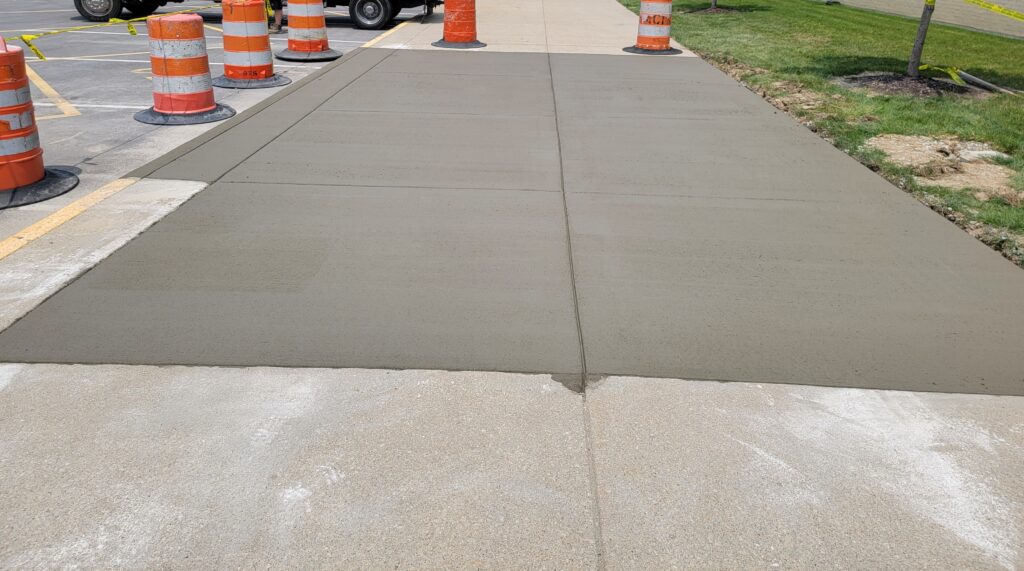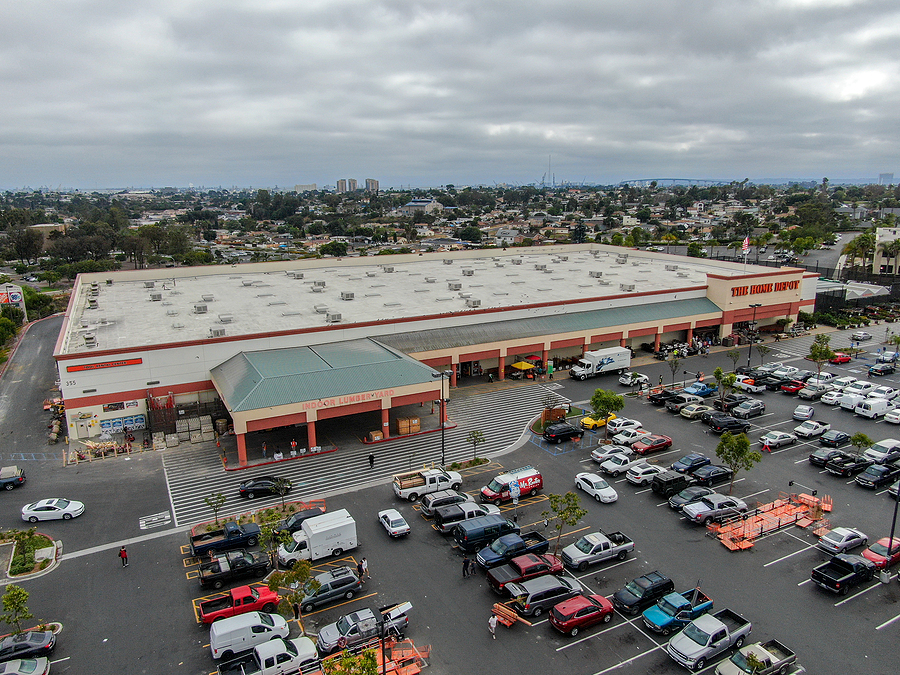In the world of commercial property management, the quality of your asphalt can make or break your business. Whether you own a shopping plaza, manage a busy office complex, or develop real estate properties, understanding the ins and outs of commercial asphalt installation is crucial. This blog post will guide you through the importance of high-quality asphalt, the installation process, and much more, ensuring your property stands out for all the right reasons.

The Importance of High-Quality Asphalt for Commercial Properties
First impressions matter, especially in business. The condition of your parking lots and driveways speaks volumes about your attention to detail and commitment to quality. High-quality asphalt not only enhances the aesthetic appeal of your property but also ensures safety for vehicles and pedestrians.
Damaged or poorly maintained asphalt can lead to accidents and injuries, leaving you liable for any resulting claims. Investing in top-notch asphalt helps mitigate these risks, providing a smooth, durable surface that withstands heavy traffic and harsh weather conditions. Ultimately, this investment pays off in the long run by reducing repair costs and enhancing property value.
Additionally, quality asphalt boosts curb appeal, making your property more attractive to potential tenants and customers. A well-paved lot reflects professionalism and care, setting a positive tone for anyone visiting your premises.
The Process of Commercial Asphalt Installation
The road to flawless asphalt begins with meticulous planning and execution. Understanding the process can help you appreciate the work involved and ensure the best results for your project.
Step 1: Site Assessment and Planning
Every successful asphalt installation starts with a thorough site assessment. Professionals evaluate the area, taking into account soil condition, drainage, and existing pavement. This information forms the basis of a detailed plan tailored to your property’s unique needs.
Step 2: Preparing the Subbase
A strong foundation is the key to long-lasting asphalt. The subbase, consisting of compacted gravel or crushed stone, provides stability and support. Proper preparation of the subbase ensures even weight distribution and prevents future issues like cracks and potholes.
Step 3: Laying the Asphalt
Once the subbase is ready, the asphalt is laid in multiple layers. Each layer is compacted to achieve the desired thickness and density. The top layer, known as the surface course, features a finer aggregate mix for a smooth, polished finish. This comprehensive approach guarantees durability and a professional appearance.
Factors to Consider for Different Commercial Settings
Not all asphalt is created equal. Different commercial settings require specific types of asphalt to meet their unique demands. Here are some factors to consider:
Traffic Volume and Load
High-traffic areas like shopping centers and industrial complexes need heavy-duty asphalt that can handle constant wear and tear. Opt for a mix with a higher percentage of coarse aggregates for added strength and longevity.
Climate and Weather Conditions
In regions prone to extreme temperatures, choose asphalt blends designed to withstand temperature fluctuations. For instance, polymer-modified asphalt offers enhanced flexibility, making it ideal for areas with freezing winters and scorching summers.
Aesthetic Preferences
If aesthetics are a priority, consider options like colored or stamped asphalt. These decorative choices can enhance the visual appeal of your property, making it stand out from the competition while maintaining functionality.
The Benefits of Proper Asphalt Maintenance for Long-Term Durability
Investing in high-quality asphalt is just the beginning. Proper maintenance is essential to maximize its lifespan and performance. Here’s why:
- Regular Inspections – Routine inspections help identify small issues before they escalate. Look for signs of wear, such as cracks, potholes, and drainage problems. Addressing these early can prevent costly repairs down the line.
- Sealcoating – Sealcoating provides an additional layer of protection against UV rays, water, and chemicals. It’s a cost-effective way to extend the life of your asphalt, keeping it looking fresh and new for years to come.
- Timely Repairs – Don’t wait for minor damage to worsen. Promptly filling cracks and patching potholes prevents water infiltration, which can weaken the subbase and lead to more extensive damage.
Tips for Selecting a Reliable Commercial Pavement Company
Choosing the right contractor can make all the difference in your asphalt project. Here are some tips to ensure you partner with a reputable company:
- Check Credentials and Experience – Verify the company’s licenses, certifications, and insurance coverage. Experience matters, so look for contractors with a proven track record in commercial asphalt installation.
- Read Reviews and Ask for References – Online reviews and testimonials offer valuable insights into the company’s reliability and quality of work. Don’t hesitate to ask for references and contact previous clients to gauge their satisfaction.
- Get Detailed Quotes – Request detailed quotes from multiple contractors. This should include a breakdown of costs, materials, and timelines. Comparing these will help you make an informed decision based on value and budget.
The Value of Investing in Quality Asphalt for Commercial Properties
Investing in top-quality asphalt is a smart move for any commercial property owner or manager. It enhances curb appeal, ensures safety, and reduces long-term maintenance costs. Quality asphalt reflects your commitment to excellence, attracting tenants and customers while protecting your investment.
Basically, a well-planned and executed asphalt installation project, backed by regular maintenance, can significantly boost your property’s value and appeal. The benefits far outweigh the initial costs, making it a worthy investment for any commercial enterprise.
Conclusion
In the competitive world of commercial property management, high-quality asphalt is not just a necessity—it’s a game-changer. From enhancing aesthetics to ensuring safety and durability, the right asphalt can set your property apart. Remember to choose the right type of asphalt for your specific needs, maintain it diligently, and work with reputable contractors.
Ready to equip your Indy commercial property with quality asphalt pavements? Contact ACI Asphalt and Concrete at 317-549-1833 for licensed, bonded, and insured commercial pavement repair and installation for asphalt in Indianapolis and surrounding townships. We also provide comprehensive paving solutions for road damage, potholes, pavement drainage, line striping, bollards, culverts, ADA compliancy, and much more.
Related Posts:
Decoding Asphalt Costs: A Comprehensive Guide
Maximizing Asphalt Lifespan: Essential Tips for Every Property Owner
Mastering High-Quality Commercial Pavement Installation









